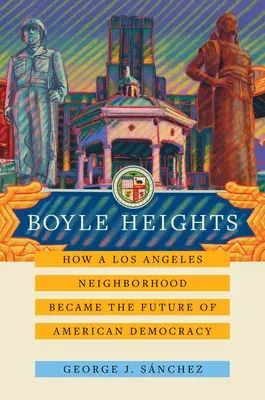The radical history of a dynamic, multiracial American neighborhood.
"When I think of the future of the United States, and the history that
matters in this country, I often think of Boyle Heights."--George J.
Sánchez
The vision for America's cross-cultural future lies beyond the
multicultural myth of the "great melting pot." That idea of diversity
often imagined ethnically distinct urban districts--the Little Italys,
Koreatowns, and Jewish quarters of American cities--built up over
generations and occupying spaces that excluded one another. But the
neighborhood of Boyle Heights shows us something altogether different: a
dynamic, multiracial community that has forged solidarity through a
history of social and political upheaval.
Boyle Heights is an in-depth history of the Los Angeles neighborhood,
showcasing the potent experiences of its residents, from early contact
between Spanish colonizers and native Californians to the internment of
Japanese Americans during World War II, the hunt for hidden Communists
among the Jewish population, negotiating citizenship and belonging among
Latino migrants and Mexican American residents, and beyond. Through each
period and every struggle, the residents of Boyle Heights have
maintained remarkable solidarity across racial and ethnic lines, acting
as a unified polyglot community even as their tribulations have become
more explicitly racial in nature. Boyle Heights is immigrant America
embodied, and it can serve as the true beacon on a hill toward which the
country can strive in a time when racial solidarity and civic resistance
have never been in greater need.

